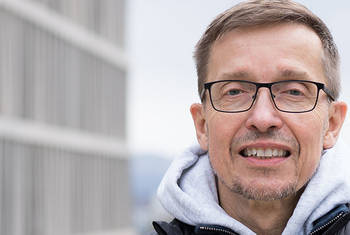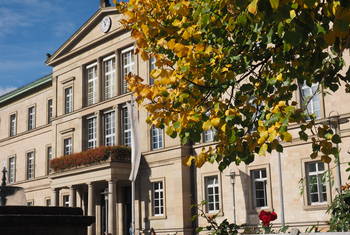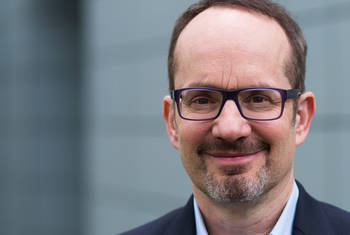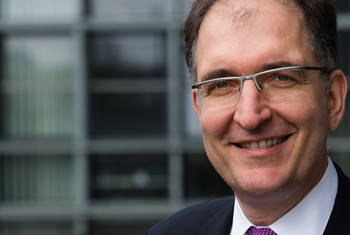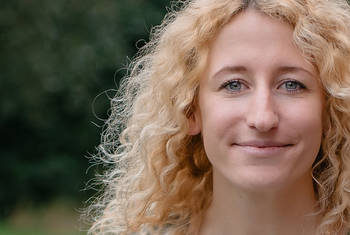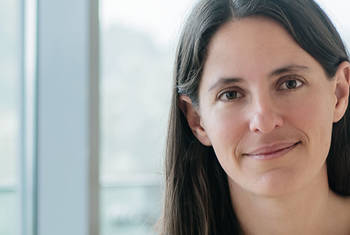Andreas Peschel How Can We Effectively Combat Antibiotic Resistant Bacterial Pathogens?
Andreas Peschel is Professor of Microbiology at the University of Tübingen’s Interfaculty Institute of Microbiology and Infection Medicine where he heads the Infection Biology Department. Completing his PhD at Tübingen after studies at Bochum, Peschel also completed post-doctoral research at the University of Utrecht in the Netherlands. His research focuses on staphylococcal biology with special interests in nasal colonization, teichoic acids and evasion of antimicrobial defense mechanisms. In 2010, Peschel received a Principal Investigator Award from the German Society for Hygiene and Microbiology.
Area of Research
Microbiology
since 2015
Head of the Infection Biology Section
University of Tübingen (Eberhard Karls Universität Tübingen)
Interfaculty Institute of Microbiology and Infection Medicine Tübingen
since 2008
Full Professor
University of Tübingen (Eberhard Karls Universität Tübingen)
Interfaculty Institute of Microbiology and Infection Medicine Tübingen
2003
Associate Professor
University of Tübingen (Eberhard Karls Universität Tübingen)
Medical Microbiology and Hygiene Department
2001
Assistant Professor
University of Tübingen (Eberhard Karls Universität Tübingen)
Microbial Genetics Department
1999
Postdoctoral Scholar
University of Utrecht
Medical Microbiology and Immunology Department
1995
Postdoctoral Scholar
University of Tübingen (Eberhard Karls Universität Tübingen)
Microbial Genetics Department
2002
Habilitation
University of Tübingen (Eberhard Karls Universität Tübingen)
Microbiology
1995
Ph.D.
University of Tübingen (Eberhard Karls Universität Tübingen)
Dr. rer. nat. in Microbiology
1990
Diploma in Biology
University of Tübingen (Eberhard Karls Universität Tübingen)
Supervisor: Prof. Dr. Friedrich Götz
1987
Studies in Biology
Ruhr University Bochum (Ruhr-Universität Bochum)
- Member of the Board of the German Center for Infection Research (DZIF)
Prizes
- Award for Translational Infectious Diseases Research, DZIF (2017)
- Principal Investigator Award, German Society of Hygiene and Microbiology (DGHM, 2010)
- Glaxo-SmithKline Chair of Infectious Diseases (Guest Lecturer) at the Universities of Louvain-la-Neuve / Leuven, Brussels, Belgium (2004)
- German Research Council: Cluster of Excellence EXC2124 “Controlling Microbes to Fight Infections” (2019 - 2026)
- German Research Council: Cluster of Excellence EXC2124 project “Iron-binding antimicrobial shapes commensal-pathogen competition” (2019 - 2022)
- German Research Council: Transregional Collaborative Research Center TRR261 “Cellular Mechanisms of Antibiotic Action and Production” (2019 - 2023)
- German Research Council: Research Training Group GRK1708 “Bacterial Survival Strategies” (2012 - 2021)
- German Research Council: Transregional Collaborative Research Center TRR165 “Skin as sensor and effector organ" (2015 - 2019)
- German Research Council: Collaborative Research Center SFB766 „Bacterial Cell Envelope“ (2011 - 2019)
- German Research Council: Transregional Collaborative Research Center TRR34 „Pathophysiology of staphylococci“ (2010 - 2018)
- German Research Council: Collaborative Research Center SFB685 „Immuno Therapy“ (2009 - 2017)
- BMBF Grant: German Center for Infection Research (DZIF), Healthcare-associated infections research area (2012-2020)
- BMBF Grant: BMBF project “Culture Challenge” (2019 - 2020)
- BMBF Grant: German Center for Infection Research (DZIF), Preclinical development of phage lysin HY133 for nasal eradication of S.aureus (2015 - 2018)
- European Union: IMI-COMBACTE Topic 1c (Academic partners of COMBACTE, 2014 - 2019)
- European Union: Marie Curie incoming grant (2015 - 2017)
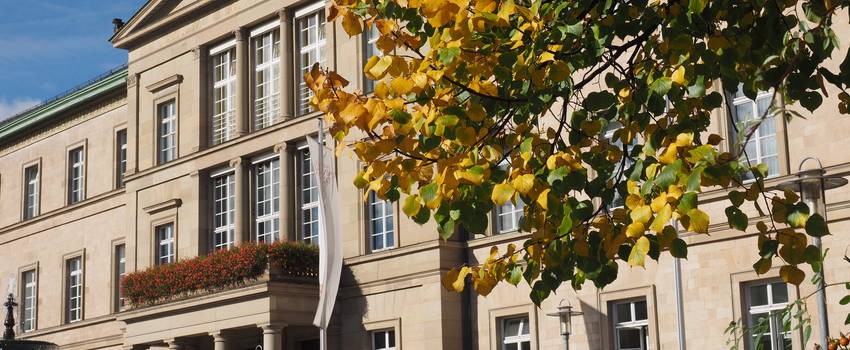 © © University of Tübingen / Friedhelm Albrecht
© © University of Tübingen / Friedhelm Albrecht

Cluster of Excellence “Controlling Microbes to Fight Infections” (CMFI), University of Tübingen
TübingenThe surfaces of the human body host colonies of microorganisms, known as microbiomes. Along with bacteria which have a positive effect on human health, microbiomes contain potentially life-threatening pathogens. In the past, broad-spectrum antibiotics have often been used to tackle them. Nowadays it is known that this not only promotes resistance to antibiotics – in many cases it also damages the microbiome as a whole.
A worldwide increase in antibiotic-resistant bacterial pathogens (ARBPs), coupled with declining discoveries of novel classes of antibiotics, raises the specter of a post-antibiotic era. Preventing the spread, human colonization, and subsequent infection by ARBPs is essential in preserving fundamental medical achievements of the 20th century.
A paradigm shift in infection control is needed, putting a hold to the indiscriminate use of antibiotics and enabling the development of targeted anti-infective strategies that promote microbiome integrity.
The researchers of the Cluster of Excellence "Controlling Microbes to Fight Infections" (CMFI) at the University of Tübingen aim to elucidate the mechanisms of interaction between beneficial and harmful bacteria in order to make them useful for targeted therapeutic interventions.
Map
The next pandemic seems likely to result from a bacterial pathogen. In this video, ANDREAS PESCHEL explores how we can effectively fight bacterial pathogens, especially where they are resistant to antibiotics. Adopting an interdisciplinary approach with colleagues from computational, clinical and compound focused sciences, Peschel’s research focuses on the bacteria Staphylococcus aureus commonly found in the human nose. Metagenome sequencing of the microbiome shows that an absence of Staphylococcus aureus often goes in tandem with the presence of Staphylococcus lugdunensis. With the latter seeming to effectively prevent a potentially deadly pathogen colonizing the microbiome, Peschel’s research breaks new ground in the development of a new kind of smart antibiotic.
LT Video Publication DOI: https://doi.org/10.21036/LTPUB10921
Human Commensals Producing a Novel Antibiotic Impair Pathogen Colonization
- Alexander Zipperer, Martin C Konnerth, Claudia Laux, Anne Berscheid, Daniela Janek, Christopher Weidenmaier, Marc Burian, Nadine A Schilling, Christoph Slavetinsky, Matthias Marschal and Andreas Peschel
- Nature
- Published in 2016


